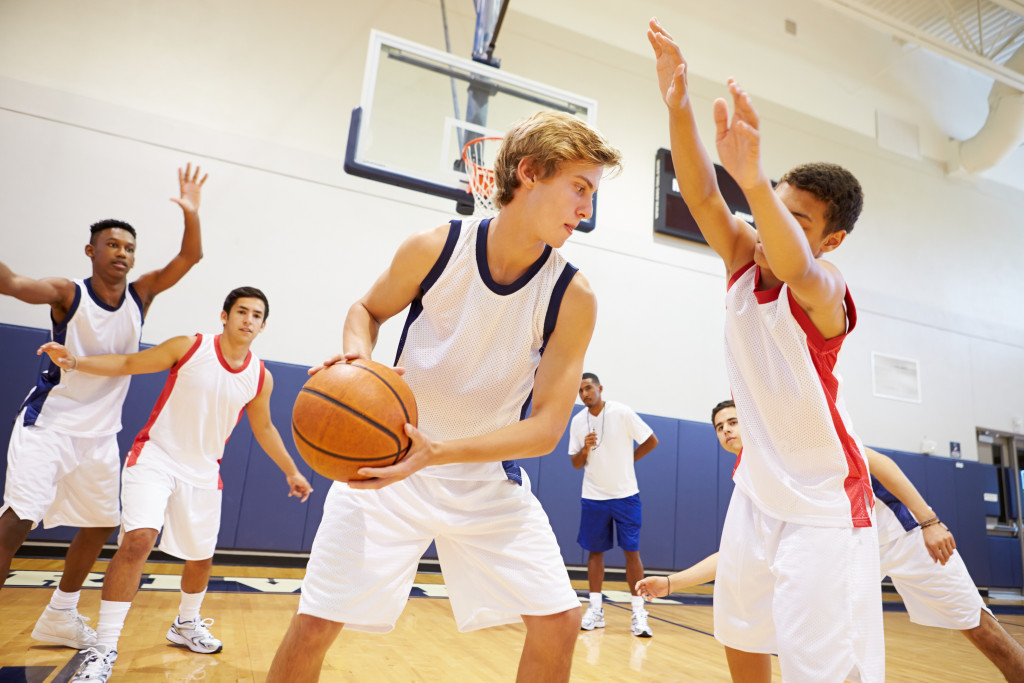As a parent of an athlete, you want your child to stay healthy and perform well in their sport. However, with all the physical activity, there is an increased risk of injuries. According to the American Academy of Pediatrics, half of all sports injuries in children are due to overuse. This is defined as repetitive motion that stresses muscles and joints, resulting in inflammation.
To help prevent overuse injuries in your child, you want to be proactive about their health. Here are some tips on how you can help your athletic teenager stay healthy while playing sports.
1. Make sure they get enough rest.
During intense training or competition, athletes need more rest than usual to allow their bodies to recover. Help your teenager by ensuring they get enough sleep at night and take breaks during the day. Encourage them to nap if possible and make sure they are not overtraining. If they seem tired or have trouble recovering from practices, it may be time to reduce their training volume.
Rest should also be taken when an injury is present. Continuing to train through pain can further damage and lengthen the healing process. Many athletes are reluctant to take time off their sport, but allowing the body to heal properly is crucial.
2. Be wary of pains and aches from injuries.
Some parents dismiss their child’s injuries, thinking they are just being dramatic. However, even minor pains and aches can indicate a more severe problem. Be sure to have your teenager evaluated if they complain of any pain, especially if it persists. Many overuse injuries, such as stress fractures, can worsen with continued activity.
Knee injuries also commonly occur in young athletes. If your child complains of knee pain, be sure to have them seen by an experienced knee specialist. Because the knees are complex joints, it is essential to get an accurate diagnosis and treatment plan to avoid further damage. In some cases, surgery may be necessary to correct the problem.

3. Make sure they are eating healthy.
Athletes must fuel their bodies with healthy foods to perform well and recover from workouts. Help your teenager by packing healthy snacks and meals for them to eat before and after practices or games. Avoid fast food and processed foods as much as possible. Instead, focus on whole foods like fruits, vegetables, lean protein, and complex carbohydrates.
Teenagers must also stay hydrated, especially during hot weather or hard training. Dehydration is one of the leading causes of poor performance in athletes. Help your teenager by ensuring they drink plenty of water throughout the day, especially before, during, and after practices or games. Avoid sugary drinks like sodas and energy drinks as much as possible. Stick to water or unsweetened electrolyte drinks instead.
4. Use proper gear and equipment.
Make sure your teenager is using the proper gear for their sport. This includes things like mouthguards, helmets, and protective pads. Proper fitting shoes are also essential to help prevent injuries. Be sure to replace gear when it becomes worn out or no longer fits properly. Don’t let your teenager use hand-me-down equipment from an older sibling or friend, as it may not offer the same level of protection.
Consider investing in custom orthotics if your teenager participates in a high-impact sport. Orthotics can help correct problems with foot alignment and improve shock absorption. This can help prevent injuries to the feet, ankles, and knees. You can talk to your teenager’s doctor or a local podiatrist about getting custom orthotics made.
5. Have a pre-participation physical exam
All athletes should have a pre-participation physical exam (PPE) before starting a new sport. This exam can help identify any underlying health conditions predisposing your teenager to injury. It is also an opportunity to review your teenager’s medical history and update their vaccinations.
Be sure to schedule the PPE well in advance of the start of the sports season. This will give you time to address any concerns that are found during the exam. You may also want to consider having your teenager seen by a sports medicine doctor or orthopedic surgeon for a more comprehensive evaluation. They can perform a thorough physical exam and order any additional testing that may be needed.
Following these tips can help your teenage athlete stay healthy and injury-free. Many overuse injuries and other problems can be prevented with proper care. If your teenager does suffer an injury, be sure to have them seen by a doctor as soon as possible. Early diagnosis and treatment are essential for a successful recovery. With the right precautions, your teenager can enjoy a safe and healthy sports season.









